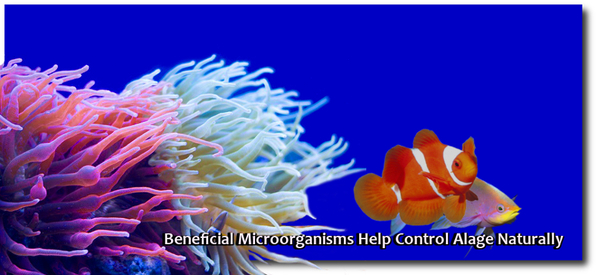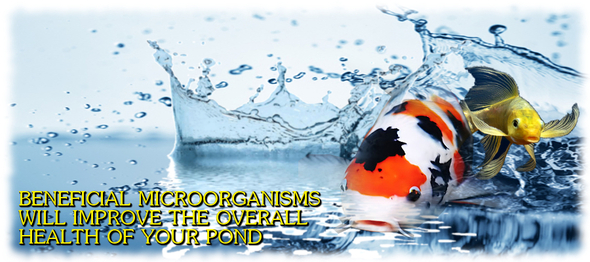Algae Management in Freshwater Aquariums

By Clifford Woods
An aquarium tank can be quite the exceptional addition to a home or workplace. There isn't anything more relaxing than viewing fish swimming in harmony through the clear, dazzling tropical water. On the other hand, there is practically nothing more unpleasant than an aquarium tank abundant with algae.
Below are a handful of concerns and tips to assist with algae management.
Just about all fish displays contain algae. A small bit of it is not necessarily harmful, however if it isn't controlled algae can multiply quickly and take control of your freshwater tank which is extremely troublesome to clean, not to mention unhealthy for the fish.
Green algae are normal for most freshwater tank owners. The two main varieties, green dot and hair, can be time intensive in addition to difficult to eliminate from the aquarium.
These algae grow quickly in fish tanks that get an excess of sunshine. The darker types of algae, such as black brush, generally grow soon after the initial set-up of the tank.
The algae development in fish tanks that have already been set up for a longer period of time may be related to problems with the level of phosphate or nitrate in the water.
The growth of these algae may also linked to excessive amounts of light. In order to eliminate it from the fish tank, in most cases you have to clean the entire tank extensively, decrease light exposure, and also make certain that the water condition is at a suitable temperature.
Blue-green algae and red brush are two additional varieties of algae that may develop in a fish tank. The red brush variety generally has a tendency to form in fish tanks having higher pH levels. Blue-green algae are a slimier type which can be dangerous to both vegetation and fish in the tank.
One of the better processes to inhibit the development of numerous algae would be to manage lighting. For algae management, never place fish tanks close to windows and be sure to reduce the lighting to eight hours on a daily basis. Employing a lighting timer is a fantastic way to supply your fish tank with suitable quantities of light.
Much like your fish, algae have to consume to live. Algae develop best through taking in phosphorus, potassium, and nitrogen. You have the capability to significantly enhance algae management in freshwater fish tanks by making certain that your tank is not overwhelmed by fish waste products, excessive food, or rotting vegetation. Additionally, perform water adjustments regularly and use a properly measured filtration system.
Incorporating algae consuming agents to your aquarium would be a good option. Snails and algae-eating species of fish are able to assist in the management of algae within the tank.
You should be aware that snails can populate remarkably quickly, however with proper control including a snail and an algae-consuming species to a fish tank could very well be an excellent idea. Take note that when all of the algae are consumed, you are going to have to feed these fish with store-bought food.
It is not unusual for algae to start to re-populate within a clean fish tank during a time span of just three weeks. For regular algae regulation, be mindful with regards to overfeeding your fish, promptly remove any dead fish from the tank, be aware of the amount of light that the aquarium receives, and also use some type of filtering method.
Additionally, remove any obvious algae with a scrubber designed for this sort of cleanup. A really simple way to eradicate algae from a freshwater fish tank would be to apply a probiotic algaecide.
This type of solution is perfectly safe for your fish and actually benefits the water in numerous ways due to the beneficial microorganisms contained with the product.
An aquarium tank can be quite the exceptional addition to a home or workplace. There isn't anything more relaxing than viewing fish swimming in harmony through the clear, dazzling tropical water. On the other hand, there is practically nothing more unpleasant than an aquarium tank abundant with algae.
Below are a handful of concerns and tips to assist with algae management.
Just about all fish displays contain algae. A small bit of it is not necessarily harmful, however if it isn't controlled algae can multiply quickly and take control of your freshwater tank which is extremely troublesome to clean, not to mention unhealthy for the fish.
Green algae are normal for most freshwater tank owners. The two main varieties, green dot and hair, can be time intensive in addition to difficult to eliminate from the aquarium.
These algae grow quickly in fish tanks that get an excess of sunshine. The darker types of algae, such as black brush, generally grow soon after the initial set-up of the tank.
The algae development in fish tanks that have already been set up for a longer period of time may be related to problems with the level of phosphate or nitrate in the water.
The growth of these algae may also linked to excessive amounts of light. In order to eliminate it from the fish tank, in most cases you have to clean the entire tank extensively, decrease light exposure, and also make certain that the water condition is at a suitable temperature.
Blue-green algae and red brush are two additional varieties of algae that may develop in a fish tank. The red brush variety generally has a tendency to form in fish tanks having higher pH levels. Blue-green algae are a slimier type which can be dangerous to both vegetation and fish in the tank.
One of the better processes to inhibit the development of numerous algae would be to manage lighting. For algae management, never place fish tanks close to windows and be sure to reduce the lighting to eight hours on a daily basis. Employing a lighting timer is a fantastic way to supply your fish tank with suitable quantities of light.
Much like your fish, algae have to consume to live. Algae develop best through taking in phosphorus, potassium, and nitrogen. You have the capability to significantly enhance algae management in freshwater fish tanks by making certain that your tank is not overwhelmed by fish waste products, excessive food, or rotting vegetation. Additionally, perform water adjustments regularly and use a properly measured filtration system.
Incorporating algae consuming agents to your aquarium would be a good option. Snails and algae-eating species of fish are able to assist in the management of algae within the tank.
You should be aware that snails can populate remarkably quickly, however with proper control including a snail and an algae-consuming species to a fish tank could very well be an excellent idea. Take note that when all of the algae are consumed, you are going to have to feed these fish with store-bought food.
It is not unusual for algae to start to re-populate within a clean fish tank during a time span of just three weeks. For regular algae regulation, be mindful with regards to overfeeding your fish, promptly remove any dead fish from the tank, be aware of the amount of light that the aquarium receives, and also use some type of filtering method.
Additionally, remove any obvious algae with a scrubber designed for this sort of cleanup. A really simple way to eradicate algae from a freshwater fish tank would be to apply a probiotic algaecide.
This type of solution is perfectly safe for your fish and actually benefits the water in numerous ways due to the beneficial microorganisms contained with the product.

Author: Clifford Woods is the CEO of Effective Environmental Services and Organic Environmental Technology.
We brew Beneficial Microorganisms that eat toxins in the environment and offer Naturally Organic Solutions.
We brew Beneficial Microorganisms that eat toxins in the environment and offer Naturally Organic Solutions.



 RSS Feed
RSS Feed